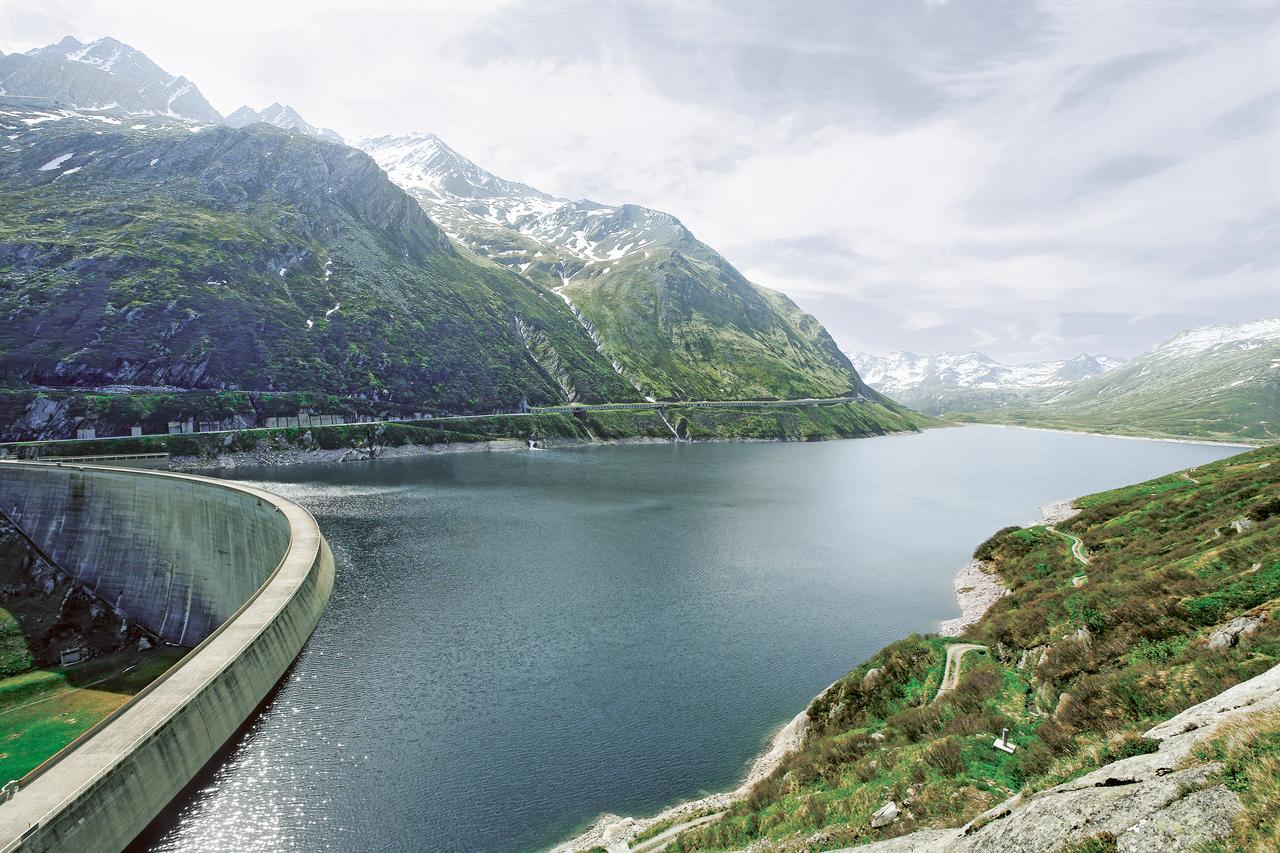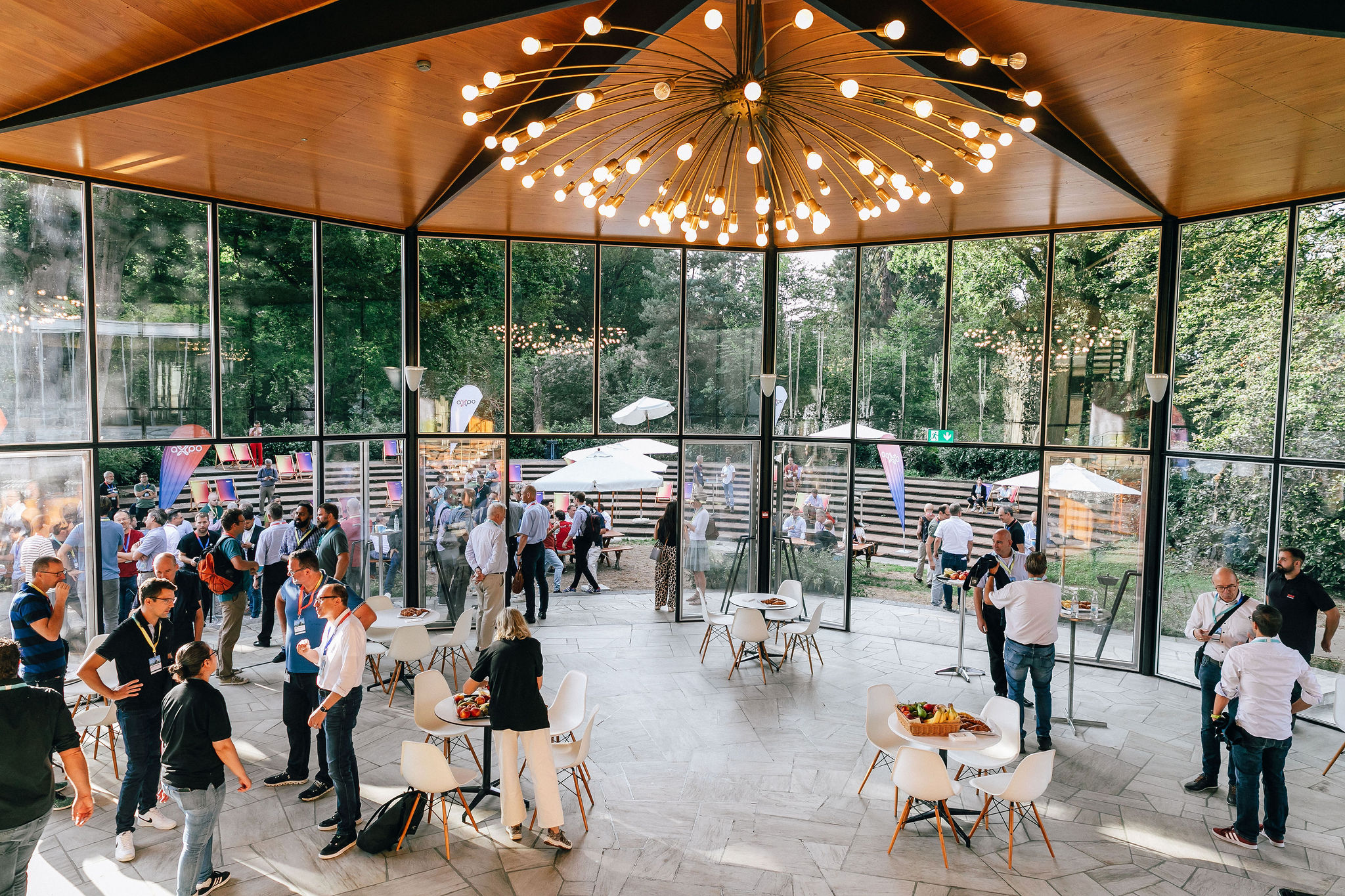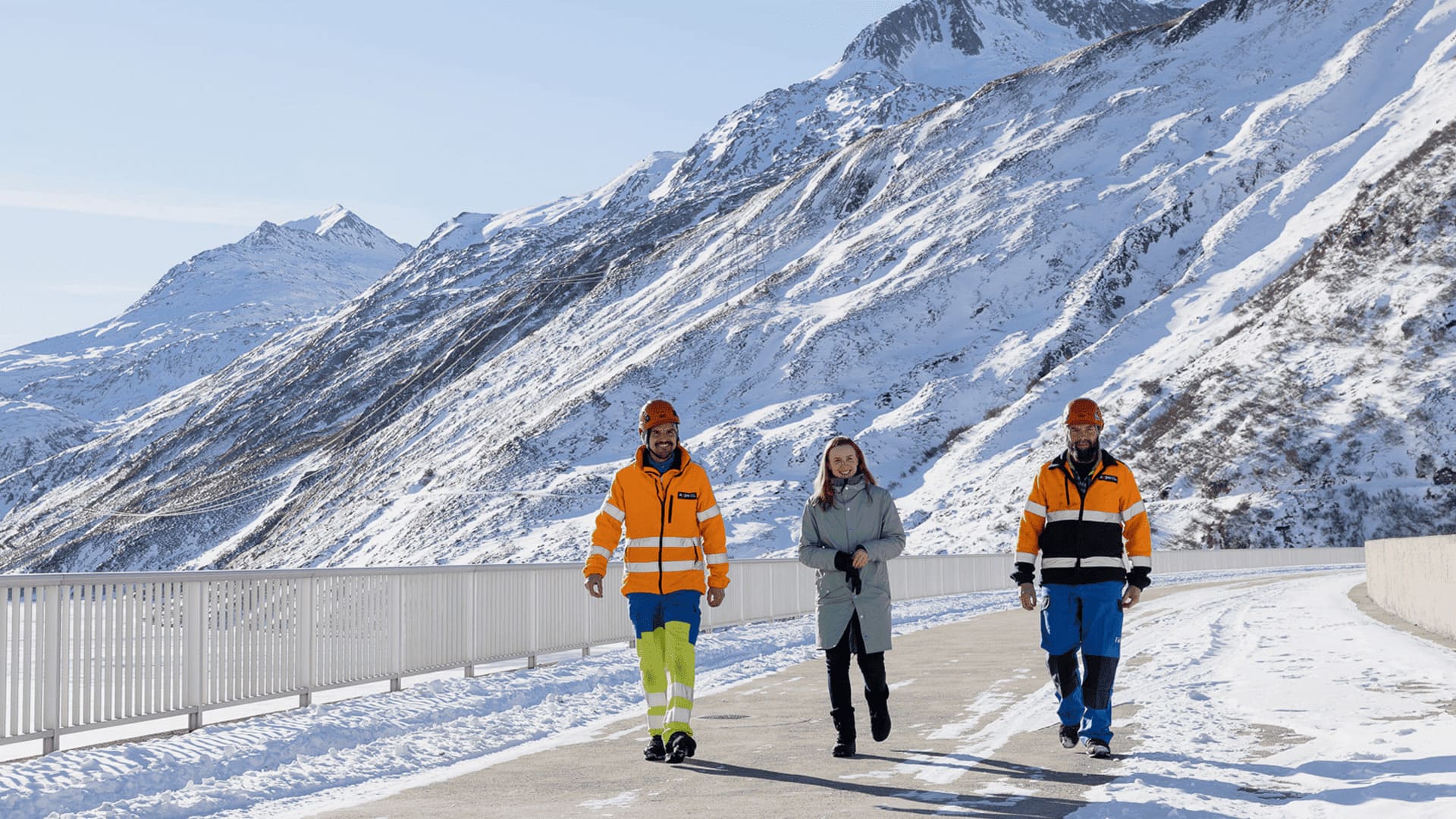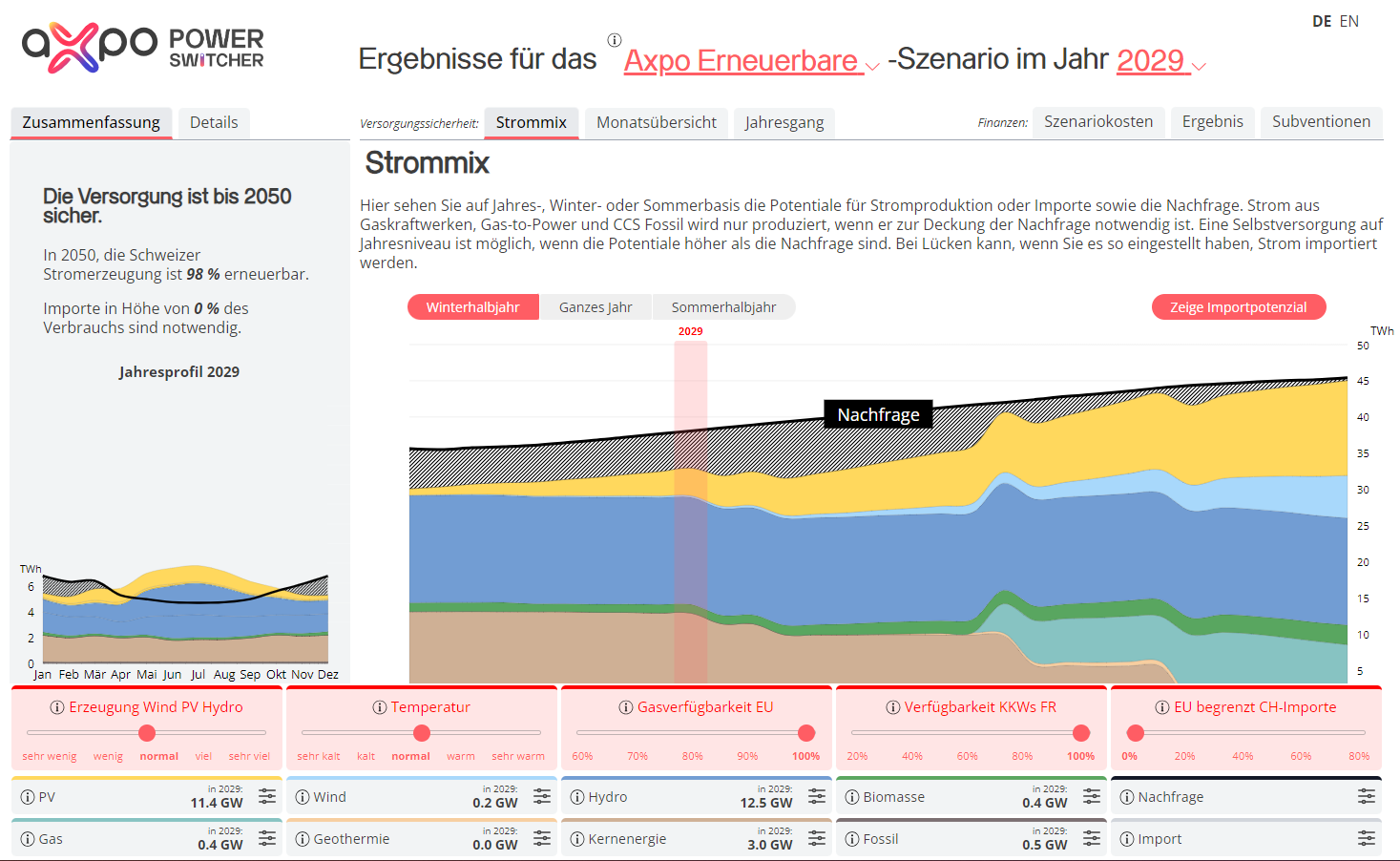Axpo Kompogas plant in Chavornay even more environmentally friendly thanks to gas storage system
26.04.2018 - Axpo is optimising its energy production in the Kompogas process: Under a pilot project, the plant in Chavornay (Canton of Vaud) has been equipped with a gas storage system in combination with a new press water tank in order to substantially increase power and heat production an reduce greenhouse gas emissions.
Axpo operates 15 Kompogas fermentation plants in Switzerland with a focus on waste treatment and the production of fertiliser. In twelve of the plants, the biogas produced during the fermentation process is directed to a co-generation plant and utilised to produce energy (heat and electricity). Depending on biomass volume and quality, biogas production, and as a result energy production, fluctuates strongly.
In looking toward the Energy Strategy 2050 and the increasing demand for decentralised, flexible energy sources, Axpo is optimising the energy production area in the Kompogas plants. Axpo intends to use the plant in Chavornay to balance out fluctuations in biogas production in the Kompogas process, and ensure continuous energy production even during winter months. The new operation concept in Chavornay features three measures:
- Improved control of biomass supply to the fermenter in order to balance out seasonal fluctuations. Biomass over-capacities that mainly occur in spring and summer are packed in silo bales and, if needed, can be added to the fermentation process and used for energy production during the winter. This makes it possible to operate the plant at maximum capacity throughout the year.
- A gas storage system compensates unforeseeable fluctuations in biogas production and surpluses at the plant in Chavornay. After the fermentation process, the biogas is stored and routed as needed to the co-generation plant. The new 5-metre high gas storage reservoir has a capacity of 1,500m3 corresponding an electricity production of about 3,000 kWh during 5 hours.
- A new press water tank to store liquid fertiliser has been combined with the gas storage tank. With a volume of 4000m3 the gas-tight tank has larger storage capacities. Residual gas from liquid fertiliser is also collected in the gas storage tank and routed to the co-generation plant for power generation. This reduces emissions into the environment.
The new press water tank and gas storage system has a total diameter of 23 metres and a height of 15 metres.
Control energy in the winter months
Axpo is the largest producer of renewable energies in Switzerland and is expanding in this area with the pilot project in Chavornay. The new plant operation concept substantially increases power and heat production at the Kompogas plant, and reduces maintenance work as well as greenhouse gas emissions. The goal is to acquire experience with the new plant operation concept in Chavornay and, if successful, to retrofit other Kompogas plants where possible. The new option to store biogas and use it later for electricity production makes it possible to offer valuable control energy on the power market.
The Kompogas plant in Chavornay was commissioned in 2011. Installed capacity amounts to 625 MW. Construction for the new press water tank and gas storage system began in December 2016. The new plant has been in successful test operation since February 2018. Total costs for the project amount to about CHF 1.3 million.
- Photo Kompogas plant in Chavornay Send email Download
- Photo new press water tank and gas storage system Send email Download
- Media release View Send email Download
Axpo Holding AG
Corporate Communications




.jpg)





